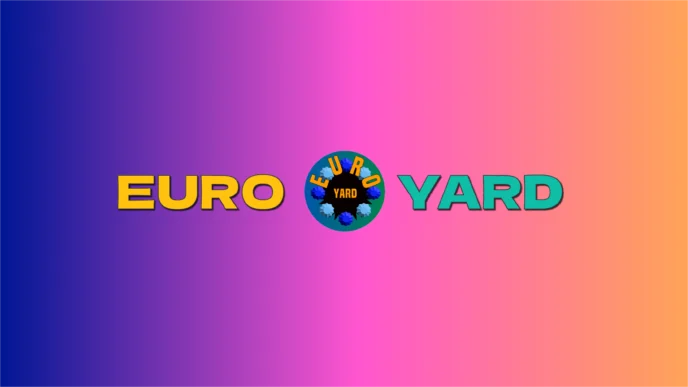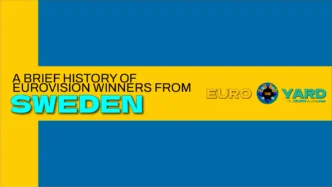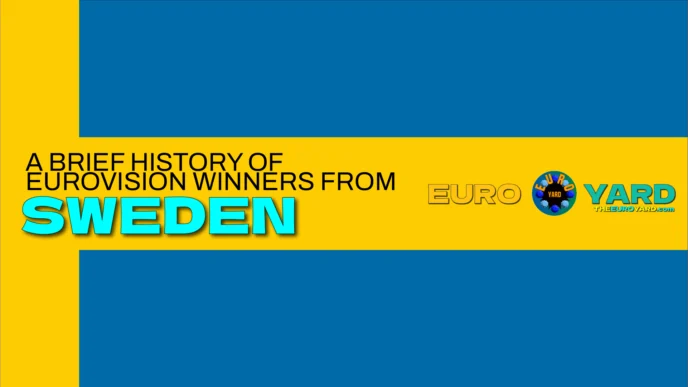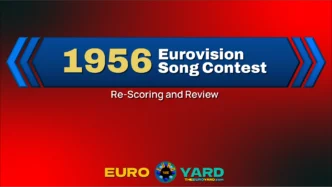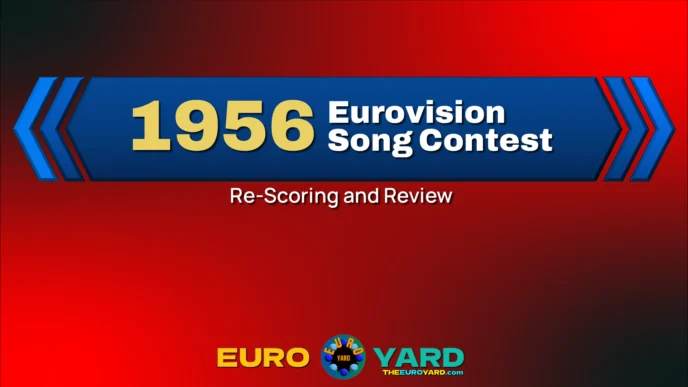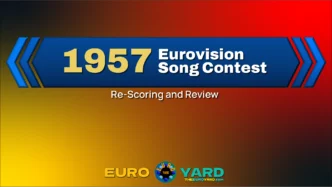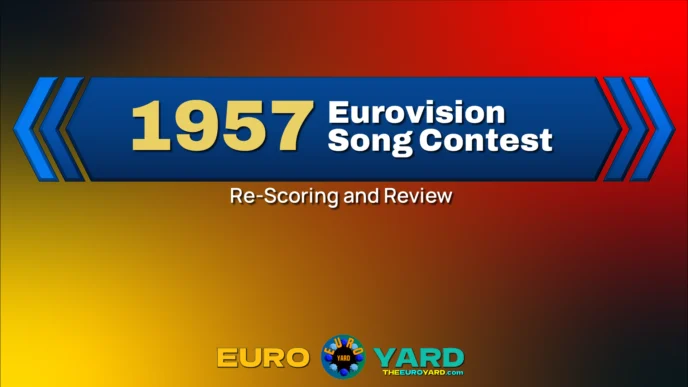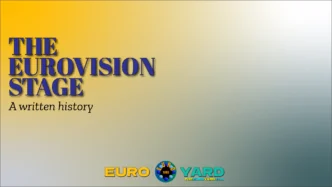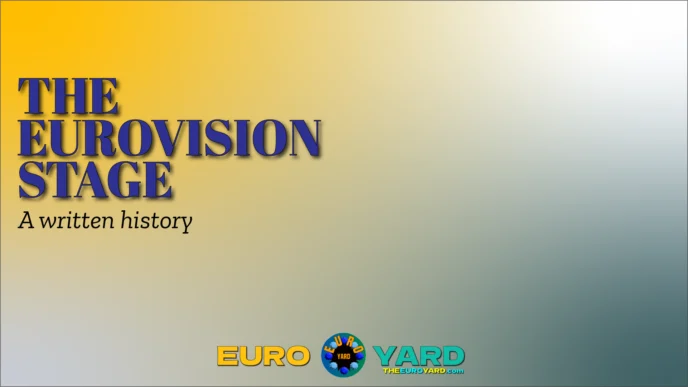Time to start writing the angry e-mails: We present the first installment of The Euro Yard’s unpopular Eurovision opinions.
Have you ever felt that you hated a Eurovision song that everyone else loved, kind of like how Elaine on Seinfeld hated The English Patient but everyone else raved about it? Were there songs that you loved but are conventionally believed to be subpar or lousy? Perhaps you will find yourself in agreement today about something, or hate my guts and block this website on your browser. Either way, today, we are here to speak the truth on six topics. Future spicy editions will follow.
#1: Save Your Kisses for Me (UK 1976) was decent, but nothing special.
Of all my unpopular Eurovision opinions, this will probably be up there with the most reviled. “Save Your Kisses for Me,” the United Kingdom’s 1976 winning song, has consistently ranked among Britain’s favorite (favourite?) Eurovision entries. However, I have watched that performance several times, and I assure you, the needle did not move.
Was it the hand-wave thing? Is that what it was? Because the song was cute but rather ordinary. I would not even put it in the top 10 or 15 of Britain’s best entries in the contest.
By the way, hold your angst: We still have them as an honorable mention for our Top 100.
#2: I have no idea what people saw in Amar Pelos Dois (POR 2017).
I will start this off by paying Portugal’s 2017 winning song a compliment: It did very well in the competition and the country should be proud of its victory.
Now that that’s out of the way, I still cannot wrap my head around it. Sobral was inaudible at times and I did not connect with the song at all. Sure, it was different, and I do not require big staging and/or a huge voice to enjoy a song, but what was it, Europe? Help me out here. It won by a gigantic margin, so it should not be this difficult for me to figure out why it did so well.
This might not be that unpopular, as the song has its critics out there, but it needs to be said. Portugal’s winning song from 2017 was perhaps my least-favorite winning song in Eurovision history.
#3: I don’t mind Måns Zelmerlöw’s omnipresence at Eurovision.
I’m sure plenty of you reading this article are reminded of the quip, “how can we miss you if you won’t go away?” In the case of Eurovision’s 2015 winner, Måns Zelmerlöw, I am not particularly bothered by him appearing at the contest just about every year since his victory. And yes, he’s going to show up in Malmö in May 2024; how could he not? I mean, Petra will be there and it’s in Sweden.
If anything, I am gratified that a former winner (a very good one at that) still wants to be part of the contest. Some acts got “too big” for Eurovision, or at least felt they did. Måns is still getting up on stage and doing his thing. I’m not irritated by it at all.
#4: Arcade (NED 2019), Diggi-Loo Diggi-Ley (SWE 1984), and Hard Rock Hallelujah (FIN 2006) were mid-tier winners.
I think I hear some blunt objects being thrown in the distance, but I assure you, I still have good enough reflexes to duck.
Let’s start with the most of these unpopular Eurovision opinions, the first song, “Arcade” by Duncan Laurence. He did a fine job in 2019, and nobody is arguing a lack of talent. His song blew up after his Eurovision victory, even to the point where it was played on American radio stations. I know this because I heard it myself. Before I watched the 2019 contest, I was excited to see the song performed, and then after I watched it, I was like “…yeah, that was fine.” Maybe it was built up for me so much that I expected more, but I don’t think it was necessarily for me, either.
Sweden’s 1984 winner, “Diggi-Loo Diggi-Ley,” was a fun song. It was happy, peppy, and energetic. The singing was not that great and Sweden’s six other winning songs were superior. Several of Sweden’s losing songs, like Carola’s “Främling” in 1983, were better (and she might have won if not for an all-time great performance by Luxembourg). This was not my douze points song in 1984, needless to say.
With Finland’s “Hard Rock Hallelujah,” it was much the same issue I had with “Arcade.” This was a song that I heard much about and expected to know right away why it won. Well, I do know why it won (other than getting the most points): it was very, very different, and the staging was exceptional. As for the song itself, even as someone who likes when rock comes to Eurovision, I did not connect with it. Their sound is dissonant by design and it’s not a song I would go out of my way to find.
#5: Azerbaijan and Germany’s winning songs were nowhere near their best.
Azerbaijan won Eurovision in 2011, while Germany won in 1982 and 2010. None of those three were the best song their country has sent to the contest.
Starting with Azerbaijan, “Running Scared” was fine. Just fine. As of 2023, we had it as Azerbaijan’s seventh-best song. It might have been eighth if Efendi got to perform “Cleopatra” in 2020, because that would have gone straight to number one. Which of these unpopular Eurovision opinions is more so: that Azerbaijan’s best song was never performed, or that their 2011 winner was seventh out of 15 songs? Discuss amongst yourselves.
As for Germany, I will give a nod to “Ein bißchen Frieden” as being a top-ten German entry, but not top five, and not all that memorable to me. With regards to “Satellite,” the beat was the only thing I could identify that I liked. Was it a bad song, no, but did it blow me away, not to any extent. It was one of those winning songs that someone would have to explain to me how it got to where it ended up, because I could not tell you. Might have been one of those “you had to be there” sort of things.
#6: Nel blu, dipinto di blu (ITA 1958) is the most robbed Eurovision song of all-time.
It only took three Eurovision Song Contests before there was a controversial winner (controversial in my opinion, anyway). Domenico Modugno was robbed in the 1958 contest, losing to “Dors, mon amour,” a rather dull love song from France. In fact, if you pressed me to hum that song right now, I would not be able to remember it. However, everyone knows VOOOOOOOO-LARE!
Good songs lose to other good songs all the time at Eurovision; that is not news, and it is to be expected. Good songs that lose to others of like kind and quality do not “get robbed.” However, “Nel blu, dipinto di blu” did, because the song it lost to was not great, memorable, or on its level.
It was not all bad news for Domenico, because he went on to win two Grammy Awards for this song a few months later (Record of the Year and Song of the Year). That does not make the 1958 Eurovision juries look better, by the way – well, actually, it makes them look quite terrible. They passed up a future Grammy-winning song for something eminently forgettable. Whether or not this opinion is unpopular, I am firmly behind it.



